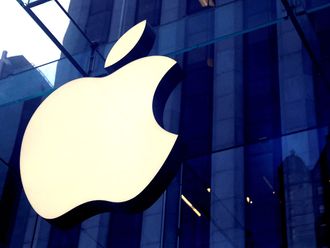Dubai: Dubai shares hit a fresh seven-year low and Abu Dhabi's bourse dropped to its lowest close since March 2009 yesterday on growing concern that full-year earnings will signal a flagging economy.
The Dubai Financial Market (DFM) General Index lost 1.01 per cent to 1,301.24 and the Abu Dhabi Securities Exchange tumbled 0.83 per cent to 2,324.73.
European stocks swung between gains and losses, following three days of declines, as France prepared to sell debt after S&P stripped the country of its top credit rating. US index futures and Asian shares fell.
"[Losses in the UAE] are a combination of the euro downgrades and a lack of conviction about upcoming company earnings," said Robert McKinnon, chief investment officer at ASAS Capital.
"I do not think it has been a disastrous fourth quarter for most companies but we will likely see a slowdown in the earnings rebound. It is going to be a lethargic week with markets remaining range-bound barring any spectacular news developments coming out of Europe," he added.
McKinnon says global markets should be in a position to move forward in the second half of 2012.
"There is a lot of uncertainty at the moment but investors are more lethargic than anything else; trading volumes are low all over the world," he said.
Uncertainty
"Markets dislike uncertainty but the general consensus is global uncertainty will start to abate as issues are resolved in the first half of the year."
Developments in the Eurozone are continuing to have an adverse impact on investor sentiment across the Arab world in the wake of the S&P downgrades.
Elsewhere in the region yesterday, Saudi Arabia's Tadawul All Share Index lost 1.1 per cent, Qatar's measure was little changed, Bahrain's bourse gained 0.67 per cent, Kuwait's gauge closed flat and Muscat's exchange edged 0.1 per cent lower.
"While the downgrades to France may not be too surprising to markets, it is still disappointing news," Dominic Rossi, chief investment officer for equities at Fidelity Worldwide Investment in London, told Bloomberg.
"The Eurozone crisis is now dominating market activity again, after a period in which better economic news from the US, and easier monetary policy in China had helped markets move higher," he added.












